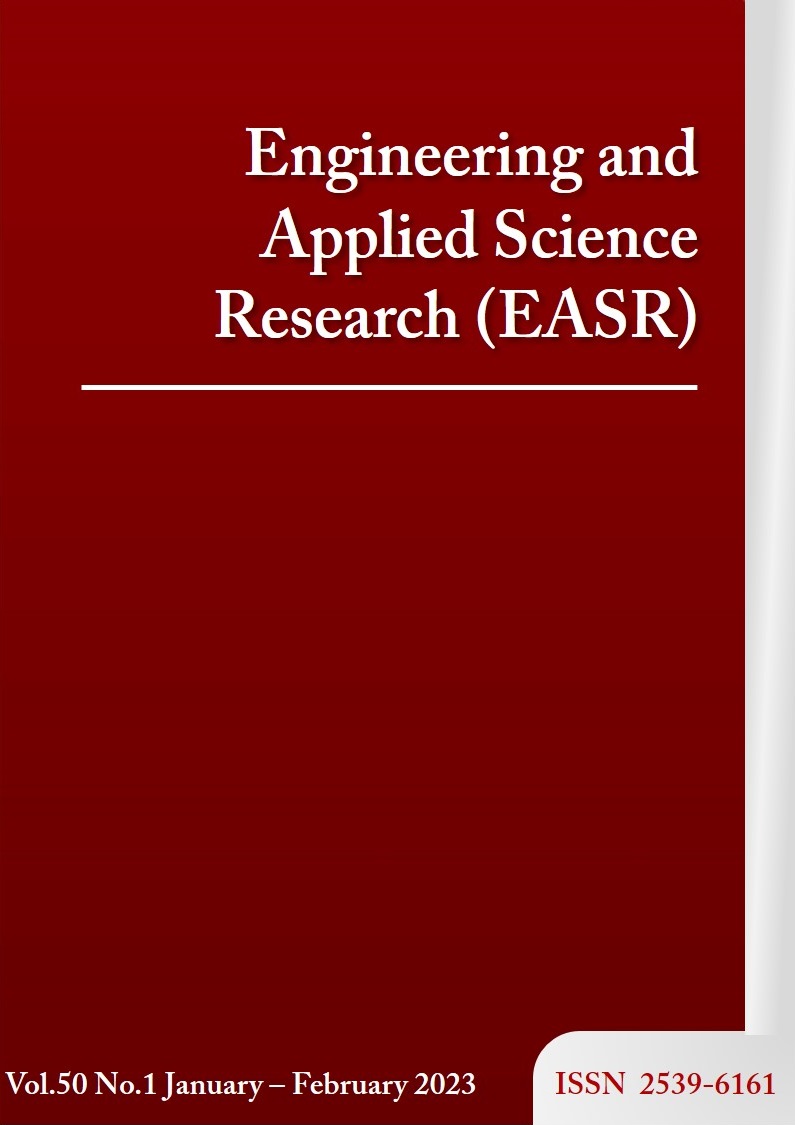A dynamic allocation model for bike sharing system; the sharing economy concept
Main Article Content
Abstract
The problem of allocating bikes in bike sharing is well known and involves balancing the number of bikes in a station to avoid having too many or too few. Distributing the bikes incurs costs, such as maintenance, distribution, staff, insurance, office space, and others, which are borne by the organization. To maintain the same level of service while reducing operational costs, the sharing economy concept has been introduced. In this study, we assume that every bike user is willing to move the bike to a nearby station, and we propose a dynamic model that allows for bike allocation during operation time. Our mathematical model for dynamic allocation aims to determine the maximum number of transfer bikes needed by the users. Additionally, we compare our proposed model with the traditional model in terms of the number of insufficient bikes, distance, and CO2 emissions. Our results demonstrate that the proposed model ensures that there are no unbalanced bikes at every station, similar to the traditional model. Even the total distance covered by the proposed model is longer than that of the traditional model. However, our findings indicate that applying the sharing economy concept also benefits the environment by reducing CO2 emissions.
Article Details

This work is licensed under a Creative Commons Attribution-NonCommercial-NoDerivatives 4.0 International License.
This work is licensed under a Creative Commons Attribution-NonCommercial-NoDerivatives 4.0 International License.
References
Bullock C, Brereton f, Bailey S. The economic contribution of public bike-share to the sustainability and efficient functioning of cities. Sustain Cities Soc. 2017;28:76-87.
Miguel C, Martos-Carrión E, Santa M. A conceptualisation of the sharing economy: towards theoretical meaningfulness. In: Česnuitytė V, Klimczuk A, Miguel C, Avram G, editors. The sharing economy in Europe. Cham: Palgrave Macmillan; 2022. p. 21-40.
Daglis T. Sharing economy. Encyclopedia. 2022;2(3):1322-32.
Felländer A, Ingram C, Teigland R. Sharing economy embracing change with caution. Sweden: Näringspolitiskt Forum; 2015.
Dell’Amico M, Hadjicostantinou E, Iori M, Novellani S. The bike sharing rebalancing problem: mathematical formulations and benchmark instances. Omega. 2014;45:7-19.
Chemla D, Meunier F, Wolfler Calvo R. Bike sharing systems: Solving the static rebalancing problem. Discrete Optim. 2013;10(2):120-46.
Leclaire P, Couffin F. Method for static rebalancing of a bike sharing system. IFAC-PapersOnLine. 2018;51(11):1561-6.
Rey D, Costa Affonso R, Couffin F, Leclaire P. Modelling of user behaviour for static rebalancing of bike sharing system: transfer of demand from bike- shortage stations to neighbouring stations. J Adv Transp. 2021;2021:8825521.
Wang YJ, Kuo YH, Huang GQ, Gu W, Hu Y. Dynamic demand-driven bike station clustering. Transp Res E: Logist Transp Rev. 2022;160:102656.
Dell’Amico M, Iori M, Novellani S, Subramanian A. The bike sharing rebalancing problem with stochastic demands. Transp Res B: Methodol. 2018;118:362-80.
Hu R, Zhang Z, Ma X, Jin Y. Dynamic rebalancing optimization for bike-sharing system using priority-based MOEA/D algorithm. IEEE Access. 2021;9:27067-84.
Chiariotti F, Pielli C, Zanella A, Zorzi M. A dynamic approach to rebalancing bike-sharing systems. Sensor. 2018;18(2):512.
Dötterl J, Bruns R, Dunkel J, Ossowski S. Towards dynamic rebalancing of bike sharing systems: an event-driven agents approach. In: Oliveira E, Gama J, Vale Z, Lopes Cardoso H, editors. Progress in artificial intelligence. Cham: Springer; 2017. p. 309-20.
Chiariotti F, Pielli C, Zanella A, Zorzi M. A bike- sharing optimization framework combining dynamic rebalancing and user incentives. ACM Trans Auton Adapt Syst. 2020;14(3):1-30.
Qin M, Wang J, Chen WM, Wang K. Reducing CO2 emissions from the rebalancing operation of the bike- sharing system in Beijing. Front. Eng. Manag. 2021:1-23.
Kamano K, Arviphan M. Pickup and delivery vehicle routing problem in bike sharing system: a case study of the Chiang Mai bike-sharing system, Thailand. Ladkrabang Eng J. 2022;39(1):91-105.
Erdogan G (Developer). VRP Spreadsheet Solver; 2013.
Ragon PL, Rodríguez F. CO2 emissions from trucks in the EU: an analysis of the heavy-duty CO2 standards baseline data. Washington: International council on clean transportation; 2021.
European Cyclists' Federation. How much CO2 does cycling really save? [Internet]. 2013 [cited 2021 Jul 10]. Available from: https://www.ecf.com/news-and-events/news/ how-much-co2-does-cycling-really-save.



